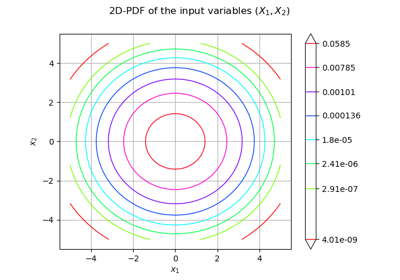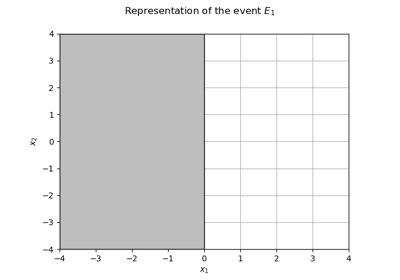MultiFORMResult¶
- class MultiFORMResult(*args)¶
Multiple FORM result.
- Parameters:
- collsequence of
FORMResult Collection of FORM results
- collsequence of
See also
Methods
Accessor to the object's name.
Accessor to the failure probability
.
Accessor to the FORM results.
Accessor to the Generalised Reliability Index.
getName()Accessor to the object's name.
hasName()Test if the object is named.
setEventProbability(eventProbability)Accessor to the failure probability
.
setName(name)Accessor to the object's name.
- __init__(*args)¶
- getClassName()¶
Accessor to the object’s name.
- Returns:
- class_namestr
The object class name (object.__class__.__name__).
- getEventProbability()¶
Accessor to the failure probability
.
- Returns:
- probabilitypositive float
The FORM failure probability
.
- getFORMResultCollection()¶
Accessor to the FORM results.
- Returns:
- form_collcollection of
FORMResult Results of each sub FORM calculus.
- form_collcollection of
- getGeneralisedReliabilityIndex()¶
Accessor to the Generalised Reliability Index.
- Returns:
- indexfloat
Generalised reliability index
from the FORM failure probability is equal to
the Hasofer reliability index
according to the fact the standard space center fulfills the event or not.
- getName()¶
Accessor to the object’s name.
- Returns:
- namestr
The name of the object.
- hasName()¶
Test if the object is named.
- Returns:
- hasNamebool
True if the name is not empty.
- setEventProbability(eventProbability)¶
Accessor to the failure probability
.
- Parameters:
- probabilitypositive float
The FORM failure probability
.
- setName(name)¶
Accessor to the object’s name.
- Parameters:
- namestr
The name of the object.
Examples using the class¶

Use the FORM algorithm in case of several design points
 OpenTURNS
OpenTURNS
